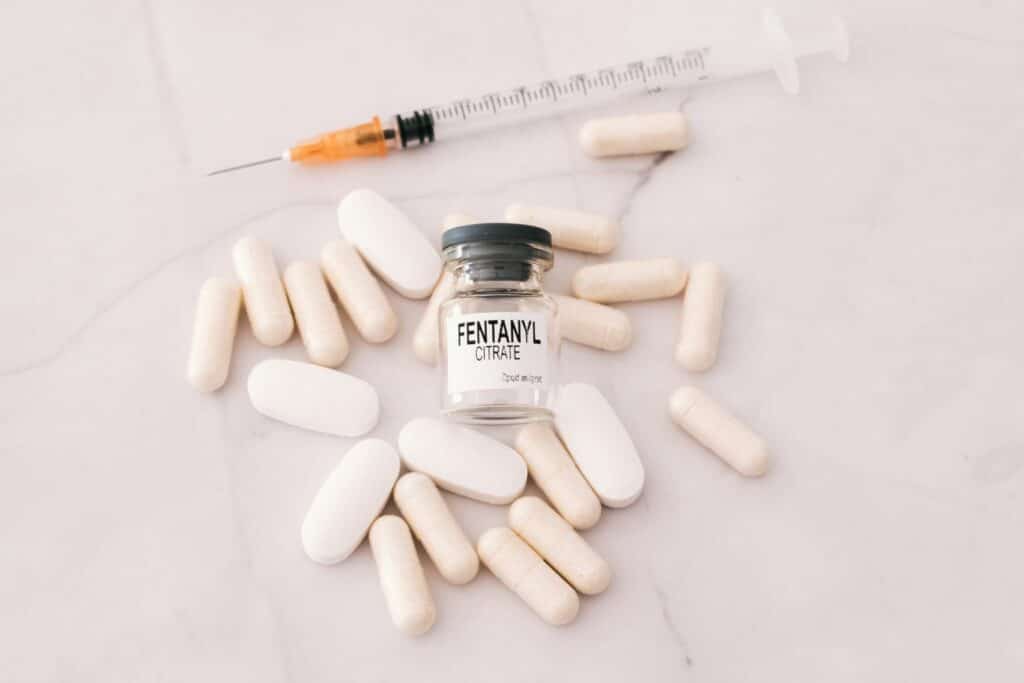Fentanyl, a robust synthetic opioid primarily used for managing acute pain, has earned a notorious reputation due to its illicit consumption and association with a rising number of fatal overdoses. Given its strength and the inherent dangers of misuse, understanding its persistence in the body becomes paramount.
How Long Does Fentanyl Stay In Your System?
While various factors influence its presence, general guidelines regarding fentanyl detection in the body include:
- Blood: Detectable up to 12 hours post-consumption.
- Saliva: Remains identifiable for 24-48 hours after intake.
- Urine: Presence can be confirmed up to 72 hours, extended for habitual users.
- Hair: Provides the longest detection window, spotting fentanyl use up to 90 days post-exposure.
These benchmarks can vary based on individual differences.
What is Fentanyl
Introduced in the 1960s, Fentanyl, a man-made opioid, stands out for its extraordinary potency, registering 50-100 times more addictive than morphine. Originally developed as a post-operative pain remedy for intense discomfort, it’s now found in numerous prescription pain relievers like Fentora, Sublimaze, and Duragesic. Its formulations range from tablets and sprays to lozenges and patches. While fentanyl offers significant medicinal benefits, its high potency carries undeniable risks. The thin line between its therapeutic use and potential for fatal overdose, especially upon misuse, is a topic of significant discussion in the medical community.
Factors Influencing How Long Fentanyl Stays in Your System
Factors that can affect its persistence in the system are:
- Administration Method: Various forms lead to different absorption and retention rates.
- Dose: Larger doses prolong elimination.
- Individual Metabolism: Personal metabolic rates influence drug breakdown.
- Age: Older age groups typically retain the drug longer.
- Health & Liver Status: General health and liver efficiency directly affect processing speed.
- Usage Frequency: Regular users might retain the drug longer due to accumulation.
Fentanyl Breakdown and Testing
Primarily metabolized in the liver, Fentanyl undergoes conversion to various metabolites, with norfentanyl being predominant. This metabolite often lasts longer in the system than the drug itself. Different tests, each with distinct sensitivity, specificity, and detection duration, can confirm its presence:
- Urine Test: Most prevalent, lasting up to 72 hours, extended for regular users.
- Blood Test: Offers a shorter, more precise detection window of up to 12 hours.
- Saliva Test: Non-invasive, lasting 24-48 hours.
- Hair Test: Spots usage up to 90 days, ideal for gauging long-term patterns but might miss recent exposure.
Consequences of Fentanyl Use
Chronic fentanyl intake, be it medical or illicit, can manifest several complications:
- Dependence & Addiction: Both physical and psychological dependencies might arise.
- Tolerance Increase: Leading to higher doses and enhanced health risks.
- Respiratory Challenges: Can culminate in respiratory failure or even death.
- Digestive Disorders: Such as chronic constipation and nausea.
- Mental Health Concerns: Including depression, anxiety, and cognitive challenges.
Find Rehab in Chattanooga Today
Fentanyl is a powerful opioid with significant medical uses, but its potency also contributes to its potential for abuse and addiction. Understanding how long fentanyl stays in your system is essential for medical professionals, law enforcement, and individuals who may be at risk of exposure. Factors such as the method of administration, dosage, metabolism, and frequency of use can impact how long fentanyl is detectable in the body.
Drug tests can detect fentanyl in blood, urine, saliva, and hair samples, with varying detection windows. While these tests provide essential information, it’s crucial to recognize the potential consequences of long-term fentanyl use. If you or someone you know is struggling with fentanyl addiction or misuse, seeking help is vital for recovery and long-term health.
If you or a loved one is struggling with Fentanyl abuse, call us now at 423-564-6114, or verify your insurance. Our fentanyl rehab in Chattanooga, TN can get you started on the path to recovery today!










